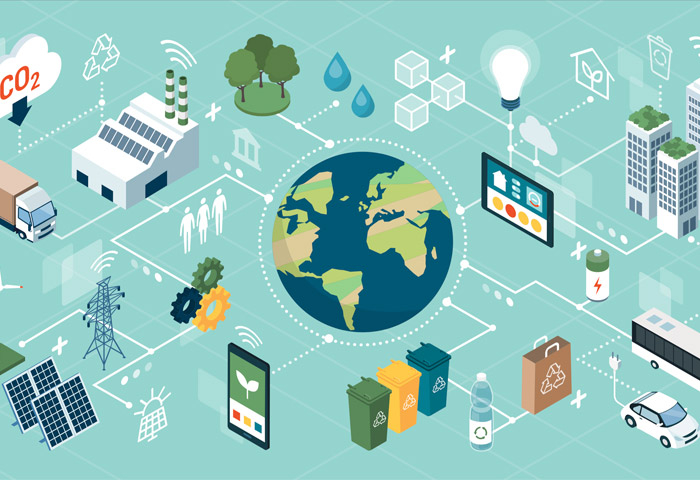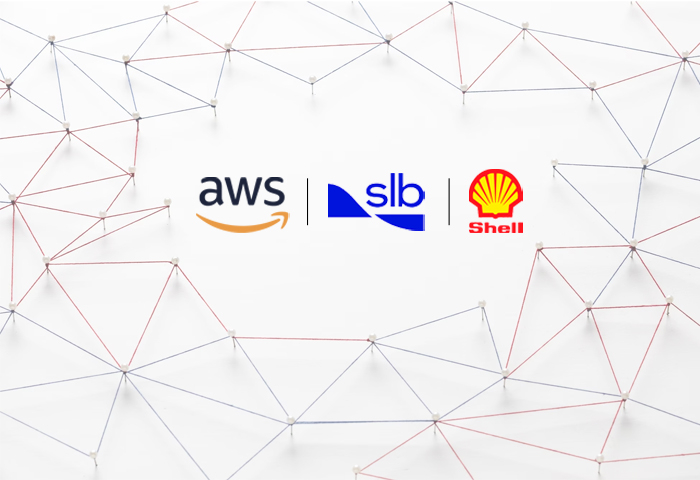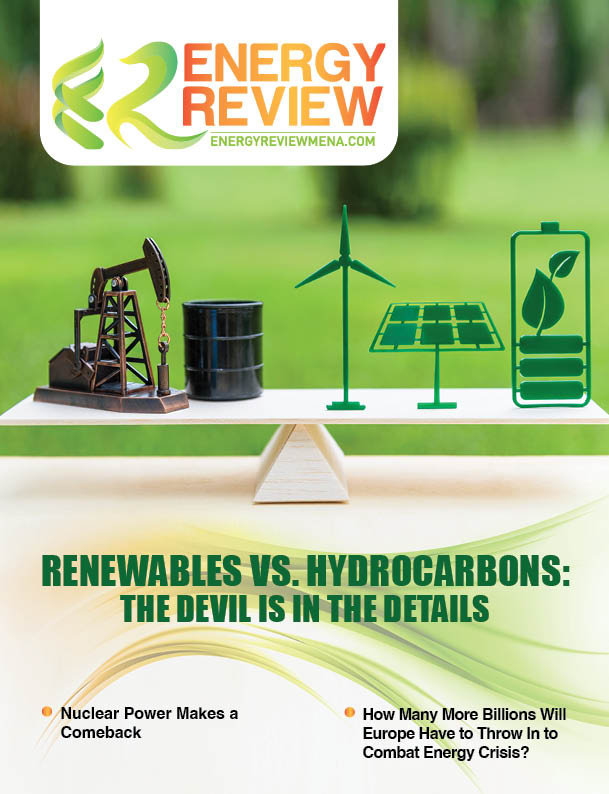The global blockchain in energy market was valued at USD 283.10 million in 2017 and is projected to reach USD 11,110.1 million by 2026, at a CAGR of 78.32% during the forecast period.
According to Diar, a blockchain research group, the initial three quarters of 2018 saw blockchain and crypto-based start-ups raise around USD 3.9 billion in venture capital funding, nearly 280% more than the entire 2017. The beauty of blockchain is that it can potentially be implemented in almost every industry, from education to financial institutions, manufacturing, and power, as proved by a recent Gartner study, which estimates that a business value of USD 3.1 trillion will be added by blockchain by 2030.
According to a forecast in 2018 by Statista, global revenues of blockchain technology are expected to reach more than USD 23 billion by 2023 and set to register significant growth in the coming years. The financial sector will hold the largest share, closely followed by the energy sector.
Blockchain potential in the energy market
Over 100 blockchain use cases have been identified. Most projects across the energy value chain are in the early stages. The peer-to-peer energy trading area, specifically, is not explored to its full extent, where owners of small-scale generation can sell their generated excess directly to other consumers. These projects range from microgrids and solar systems to e-mobility and EV-charging.
In the next few years, blockchain technology deployment will register rapid growth in the energy sector due to an increase in the generation of renewable power to support sustainable initiatives and enhance operational efficiency and security. With support from global energy and technology organizations, a significant number of start-ups are taking a keen interest in this lucrative segment, at both enterprise and consumer levels.
Recently, Dubai Electricity and Water Authority (DEWA) and Siemens have partnered to transform Dubai into the world's first government to conduct all its applicable transactions via blockchain by 2020. Both companies are implementing a number of strategies to achieve the Dubai government’s digital transformation goals as part of the Dubai Blockchain Strategy. The strategies include: seminars, lectures, internship opportunities, visiting researchers and projects funding.
Benefits of Blockchain
Transparency
Transparency of all transactions is guaranteed, thereby allowing settlement speeds close to real-time and building a base for trust and traceability between the concerned parties.
Trust
The shared reading of the blockchain fosters trust and reduces the number of intermediaries, which in turn reduces the cost of compliance, reconciliation, and transactions, by making available a marketplace with lower entry barriers and enabling smaller quantity trade.
Efficiency
As blockchain requires fewer intermediaries and simplifies processes, it ultimately increases operational efficiency. Incentives can be provided for ‘good behavior’ throughout the value chain, thus improving efficiency by the digitization of assets.
Control and security
The blockchain design inherently provides control and security. Improved encryption levels for transactions, enhanced data protection, and limited settlement and fraud risk are key characteristics of a blockchain system. Decentralization provides uninterrupted control and prevents market abuse through monopolies.
Intended Audience
- Blockchain security providers
- Communication service providers
- Blockchain technology and independent software vendors
- Infrastructure and protocol providers
- Support and maintenance service providers
- Managed service providers (MSPs)
- Network solution providers
- System integrators and implementation service providers
- Payment gateway providers
- Third-Party service providers
- Trading software providers
- Energy associations
- Government agencies
- Consultants/consultancies/advisory Firms
- Value-added resellers (VARs)
The first blockchain transaction in the energy sector was recorded in April 2016. Since then, a significant number of energy blockchain start-ups have commenced business, and are supported by large investments. Currently, start-ups in the energy blockchain sector are focusing on use cases that may be apt for energy. In fact, blockchain provides efficient tracking of energy usage and generation and identifies network anomalies, which enhances response time in case of failures or blackouts. In France, blockchain technology is explored by way of utilization in monitoring water, natural gas, and energy flow.
The oil and gas blockchain in energy market is expected to witness tremendous growth owing to limited overhead costs, fewer intermediaries, and minimized cash recycle times. Increasing focus on the implementation of technology to streamline trading in a non-digital crude oil industry, plans to improve security, and efficiency of transactions by industry giants will alter the industry landscape. For instance, BP and Shell declared the launch of a blockchain oil trading platform that will digitize and automate oilfield services. The enhanced accuracy in freight rates, shipment routing, and invoice generation will reduce discrepancies in operations and propel industry growth.
Middle East and Africa: the lands for blockchain opportunities
The presence of multiple oil and gas companies in the Middle East and Africa positively influences the demand for blockchain solutions to streamline and simplify processes in the oil and gas sector. Currently, several manual steps and procedures are involved in the physical trading of refined products, where the same information is required to be input in different systems for data reconciliation. The deployment of a distributed ledger on a blockchain platform will enable input data to be accessible to all parties in real-time, thereby reducing volume reconciliation time and price differences.
Africa is gradually developing in the blockchain in energy market, backed by massive investments and funding from the World Bank, Overseas Private Investment Corporation, and African Development Bank (AFDB) in solar photovoltaic and wind energy applications. Till this day, there are communities in Africa that are not connected to their respective national grids and depend upon solar panel projects, which often remain unfunded.
However, despite the impact blockchain may have on different industries and its clear potential to disintermediate and shorten entire value chains, the technology is still young. Organizations are now starting to explore its application to traditional business models and processes, and players in the energy space, including start-ups and large-scale utilities, are starting to engage with this technology to explore its real potential.
Dr Adham Sleiman, vice president at Booz Allen Hamilton, MENA, said, “Many digital services are already possible today without blockchain, and energy players should avoid adopting this technology for the sake of it or for fear of missing out. Early adopters should conduct a holistic assessment to understand their own role in the energy value chain, identify the business need and define a clear direction of where and with what economic benefits blockchain-based applications could be used.”









